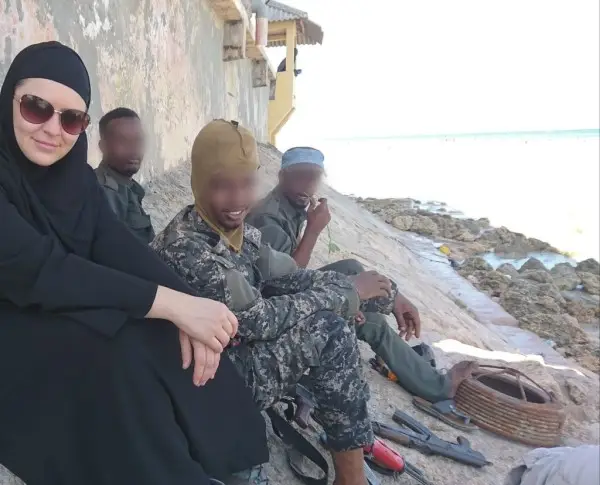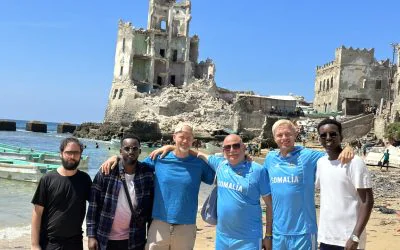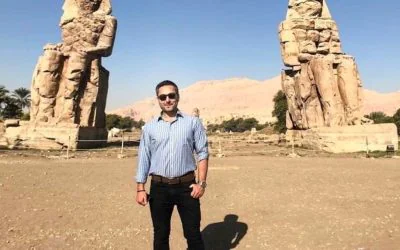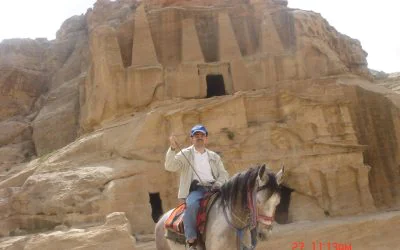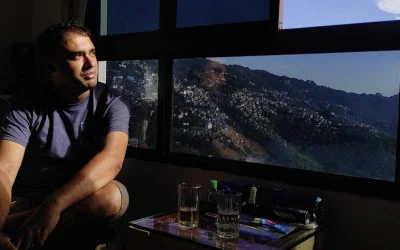Ania Budzinski is one of the most popular young travellers on EPS (Every Passport Stamp), frequently posting useful information and getting involved in the online travel debate. This young Polish-American traveller has not stopped on her path to reaching every country and today she gives us her take on travel!
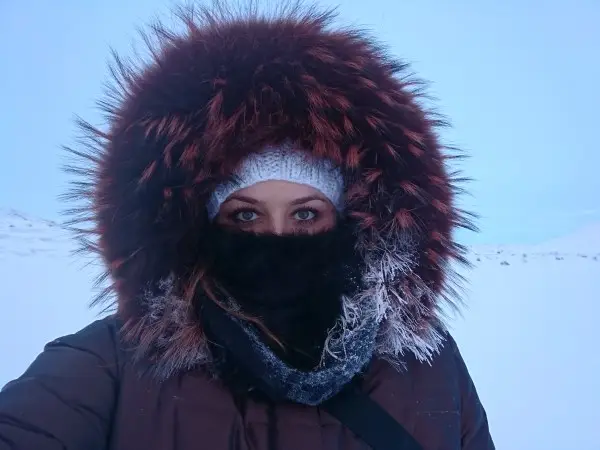
Ania, tell us something about your early life and how your love for travel emerged.
I inherited the wanderlust gene from my father’s side of the family. My father loved to travel. He was my type of traveler—the type that wanted to see and experience all that the world has to offer. My mother’s travels began when she met my father and continued after I was born. Together, they exposed me to travel. Travel has been a part of my life for as long as I can remember (and even before that). I was just a year old when I first traveled abroad from Poland. By the time I was two, I had traveled as far as Mexico and as close as Denmark. After my brother was born, my parents decided to immigrate to the United States.
I grew up traveling. From family vacations to sleepaway camps and study abroad programs, my parents incorporated travel into my life in any way they could. As immigrants, my parents had to work extra hard to make ends meet. We lived a very frugal life. Yet, no matter the financial situation, my parents always made sure to set aside money for travel. They wanted me to understand the value of time. “You will always find a way to make money, but you will never find time”, my parents often repeated. These words stuck with me and shaped my perspective.
Growing up, I took a lot of trips with my father. At first, my parents made an effort to travel together as a family. Nothing exotic, our family vacations were limited to mainstream beach destinations and all-inclusive resorts. Back then, we traveled to spend quality time together. Ironically, instead of bringing us closer, these family trips actually divided us. After my father realized that we shared the same sense of adventure, we started planning our own trips without my mother and brother. Back then, planning was easy—at that age, I just went along with whatever my father decided. Our first trip together was to Argentina, Uruguay, and Brazil. While I may no longer remember the details of this trip, I know this is where I first fell in love with traveling. Up until then, all I knew was beach resorts. This was the first time I really got to explore. I was exposed to so many different sights, people, and foods while traveling around these three countries. It was then that I realized I loved visiting new places and experiencing new cultures. There was no going back. Over the next few years, my father took me on some pretty memorable trips. Together, we wandered around the ruins of Machu Picchu and went on safari trips at Kruger National Park. These experiences fueled my wanderlust. Each trip left me wanting more.
By my teens, I wanted to see it all. But, at the same time, school and work eventually took over. When it came to both, I was always an overachiever. I spent a lot of time studying. As soon as I reached the legal age to work, sleepaway camps were quickly replaced with summer jobs. Before I knew it, I was traveling less and less. By the time I started university, the most I could do was take advantage of short-term study abroad programs. With no time to spare, I put my dreams of traveling the world on hold.
Everything changed when I lost my father. Death taught me a lot about life. It forced me to set my priorities straight. With a new perspective on life, living out my dreams became more important to me than ever before. This is when I decided to officially start chasing 193.
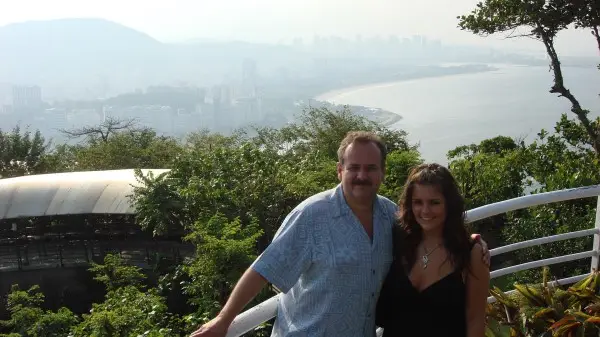
How does having two cultures change your way of seeing the world, and how do you feel it has influenced you as a traveller?
Having two cultures allowed me to see the world differently and influenced me to be open-minded and adaptable as a traveler.
I was born in Poland, but I grew up in the suburbs of Chicago. Raised between two cultures, I learned about cultural differences through firsthand experience. I was exposed to different languages, foods, and traditions from an early age. Having two cultures taught me to be more understanding and more accepting of other people. I learned about perspectives and learned to respect other cultures. I realized that my way of being is not the only way, that there is no right way of doing things. Most importantly, I learned that despite our differences, people are just people.
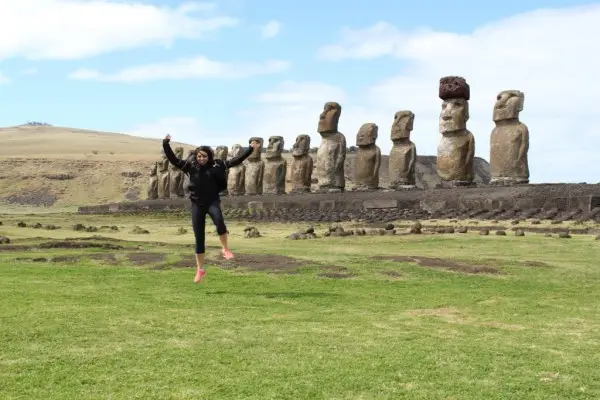
What kind of traveller are you?
It depends. I check all the boxes.
I decided to officially start chasing 193 just a few years ago in 2015. That year, I traveled solo for the first time. It was a truly transformative experience. Over the next three years, I took a lot of solo trips. That all changed shortly after I joined the group Every Passport Stamp. In 2018, when Saudi Arabia’s new e-visa generated a lot of buzz within the travel community, I turned to EPS and EPS – Meetup Group to find someone to split the cost of a day trip with me. My post attracted a lot of interest. Before I knew it, I was arranging to take 33 fellow travelers on the outing. I never liked group trips, but this group was different—I was not traveling with ordinary people. After traveling with some of the world’s most traveled people, I wanted more. Since then, most of my travel has been with fellow travelers chasing 193. In 2020, all but one trip was with other EPSers!
In between solo and group trips, I try to include my family as much as possible. In the past, my mother and I only took trips together to the Caribbean. After my father passed away, she tried really hard to be more adventurous to fill his shoes. She now goes along with anything I come up with, whether or not that means she is going dog sledding in Greenland or flying to North Korea for the weekend. In recent years, I have been prioritizing taking my grandma on trips to places she had always wanted to visit. Fortunately for me, her list is anything but mundane. Over the past few years, I took her on some unforgettable adventures. We went on safari trips in South Africa, traveled across Russia on the Trans-Siberian Railway, and sailed around Fiji. I even got her to Australia to check off her 6thcontinent! Since some of these were repeats for me, I did tag on a country or two that I needed—from Lesotho to Mozambique and Mongolia, she never complained. Sometimes my brother and friends will join my trips too. All depends on the destination!
I am very much a backpacker. In general, I really do not need much. Whether I am traveling for three days or three weeks, I only travel with a small 46-liter carry-on backpack. I always look for the best deal. Growing up, I could not afford to be into luxury travel. I did not come from a wealthy family. I watched my parents work hard and learned the value of a dollar at a very young age. I was taught to save money where I can so that I can spend it when I want. This mentality stuck around. Why pay more to sit in business class when the plane takes you to the same destination? I get it: more money, more comfort. But, I do not need these extra amenities; I value experiences over things. So, I save money on flights and hotels so that I can spend more on experiences. While I may be able to afford more comfort these days, I cannot justify it—well, at least not for myself. Things are a bit different when I travel with my family. I will spend extra on flights and hotels for more comfort when taking my mother or grandmother on trips; I always want them to have the best experience possible.
Most of my trips are short, but always filled with excitement. My bucket list includes a lot more than just visiting every country in the world. I have always been a thrill-seeker. Sometimes I plan trips solely around activities. I look for activities unique to a country, like volcano boarding in Nicaragua; swimming to the edge of a waterfall at Devil’s Pool in Zambia; and mouth-feeding hyenas in Ethiopia. I also look for opportunities to try new activities in new countries. Instead of learning to kitesurf in Chicago on Lake Michigan, I signed up for lessons in St. Lucia and Mozambique. Similarly, I try to combine snowboarding and scuba diving with travel whenever possible.
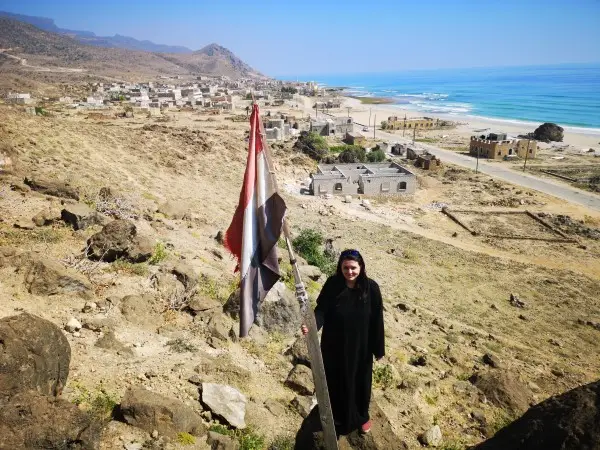
You are less than 30 years old and actively on a mission to complete 193 UN countries soon – what are your main motivators and, once you reach the goal, what do you feel will be next for you in travel?
I will keep it simple: 1. I want to see and experience all that the world has to offer; and 2. I know that life is short and full of unexpected twists and turns. I can play psychologist and talk about what drives human behavior, but for me it really comes down to these two points, combined.
My travels will not end at 193. Once I reach this goal, I will definitely continue traveling. There may be 193 UN countries, but there are 1301 NomadMania world regions!
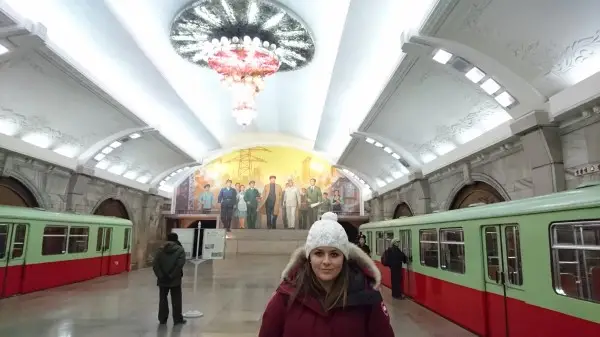
Give us a couple of travel stories that have really stayed with you.
I will never forget standing by the tracks and watching the iron ore train pass me by. Riding the iron ore train had been on my list for quite some time. I traveled to Mauritania solely to ride the train; I literally flew there for the weekend just for that. A group of fellow travelers and I arrived in Choum just before noon and spent the hanging out by the train tracks. We knew the train could come at any time. After spending the day waiting, we finally saw it approaching in the distance. We quickly gathered our stuff and eagerly waited to hop on. I cannot even begin to describe our facial expressions when we watched it just pass us by. We were speechless, gutted. None of us ever expected for it not to stop. Shortly after, we learned that no trains were expected to stop in Choum that evening. Apparently, this was been happening a lot in recent weeks/months. But, we were not prepared for this; we ignorantly just figured that the trains always stop in Choum. Did we really come all this way for nothing? No; we were not just going to give up and walk away, at least not before trying everything first. Strategizing, we figured since trains do normally stop, there had to be someone in Choum that operated the station. It was almost midnight at this time. We hunted down the chief of the train station and paid him a visit at his home. A little late to be knocking on anyone’s door, but we were desperate. He looked at us with such confusion, he must have thought we were just crazy.
We basically begged him to call the conductor of the next train to have it stop—a first for him! Although he could not make any guarantees, he agreed to make some calls. The next train was expected to arrive in Choum sometime after 04:00. We sat there in silence, afraid he would tell us off if we kept pushing. He insisted we eat, so we ended up having dinner with him and his family. The later it got, the more worried we became. There were no guarantees, it was basically just a waiting game. We looked at each other and I knew we all had the same thought. Could this man be bribed? We discussed and agreed on a price. On our way out to walk back and wait by the tracks, we thanked the chief for dinner and for all of his hard work and handed him the “gift”.
By this time, since arriving, we had spent more than 12 hours waiting around. Exhausted, but not giving up hope just yet, we decided to all take a quick nap. Shortly after 04:00, we woke up to a pickup truck pulling up next to our “camp”. It was the chief! We quickly started throwing everything into the back of the truck in preparation for the train’s arrival. We still had no confirmation. But, if the train did stop, we only had minutes to get everything and everyone up on the train. At first, it did not seem like the train was slowing down or was going to stop. Nevertheless, we all jumped into the truck and raced alongside the train waiting for it to slow down. Suddenly, all we could hear was loud screeching sounds. The train was stopping! We were ecstatic. It was pitch-black outside; we could hardly see anything. With no time to waste, we scrapped the plan of picking out a “good” wagon and started throwing everything up. Boarding the train, we were hit with another curveball. The wagons were filled with water—something none of us were expecting. Before we could even process the situation, the train lurched forward causing us to panic. Were we about to be stuck on an island of iron surrounded by water, holding onto our things and each other for the next 13 to 15 hours? It took us a moment to calm down and start thinking creatively. Initially, we tried kicking the mounds of iron piled in the center of the wagon into the surrounding water. But, we quickly realized that the iron was obviously not absorbing any of the water, it was just turning into slush. Instead, we cut open three water bottles and used them to scoop out as much water as possible before we leveled off the mounds. It took us about two hours and a lot of effort to fix our problem. But, we made it!
I do not want to jinx it, but I have been pretty lucky throughout my travels. I have never been in a situation where I legitimately thought my life was in danger while traveling. I never had anything stolen. I have never been mugged. Most of my travel mishaps are limited to bad weather and animal encounters. I have gotten food poisoning two or three times. I remember the first time like it was just yesterday, but not because of actually being sick. I was in Amman, returning home from a study abroad program. Right before takeoff, I asked a flight attendant for water. Just asked, I did not tell her how I was feeling. Instead of water, she brings a doctor onboard. After checking my blood pressure, he said I was not fit to fly and told me to get off the plane. I refused to move, I just wanted to go home. I sat there with my arms crossed for close to an hour. At that point, all of the passengers were yelling at me to get off. I continued to refuse. Eventually, some officers came on board and literally picked me up. The passengers clapped—ten years later, I still remember walking down that aisle. Fortunately, this all happened before the age of smartphones; otherwise, I would have been shared all over the Internet. Other than that, just some upset stomachs here and there. I have never caught any travel-related diseases or had any serious accidents, thankfully. I did fly over the handlebars while biking down Bolivia’s “Death Road”, but aside from sharp pains and severe bruising, I was fine. In the last decade, I only ended up in a hospital once. I was visiting some sand dunes near Dakhla on New Year’s Eve 2020. Upon arriving, I hopped out of the car and cut my foot open on a rock, a stupid rock. Gushing blood, a couple driving by stopped to help clean and wrap my foot. I figured it needed stitches, but it was nothing serious.
Somehow, everything usually works out in the end. I have showed up at land borders afterhours and managed to talk my way through each. Most recently, I was going from Nouadhibou to Dakhla and got to the border after it had closed for the day. No idea how, but managed to talk both sides into letting me and two others cross. Since everyone but security had already gone home for the day, these people literally came back just for us. No idea what I did to deserve this, but I am grateful for it all. On more than one occasion, I have waited weeks to months for a visa and only got my passport back in the mail just hours before the flight. Eritrea was the worst. The day before the trip, I told my group that I could not go because I did not get my passport back from the embassy. I went to work the following day only to receive a call from my mother telling me that my passport arrived in the mail. The flight was leaving that afternoon, so she had to pack my backpack and meet me at the airport with my passport. It sure was a close call. Surprisingly, flight cancelations have been few and far between. I had more flights canceled in one week while in Greenland than I have in the past few years combined. I have only missed one flight on accident. I took a nap during a layover and missed the alarms because my phone did not adjust time zones. I have never lost a passport while traveling, only damaged. Leaving Sydney, my passport got stuck halfway in the scanning device. The officers tugged at it for a while. Eventually, I got my passport back, but with the photo page torn in half. I was told I could not pass through passport control with a damaged passport. But, it worked out; I had another passport with me that I could use for the next two countries on that trip. A bit of a hassle, but got to check off getting an emergency passport at the U.S. Embassy in Auckland. So much has somehow just worked out for me—I hope it continues!
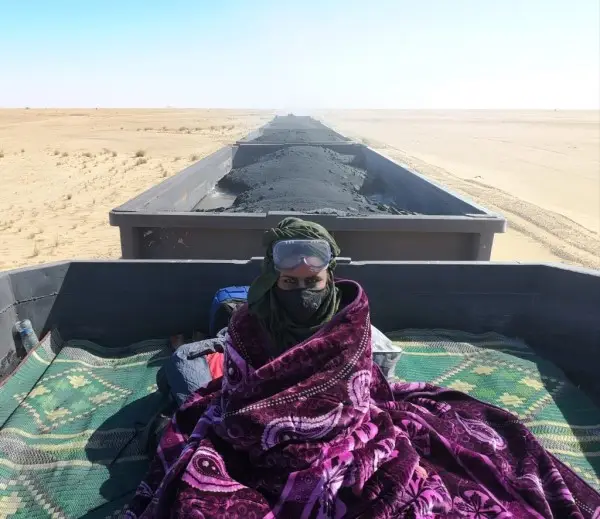
You have been successful at keeping mobile during the pandemic. Tell us a little about the trips you have had in the past year or so, how you’ve organised them, and what extra challenges and rewards there have been.
My job forces me to plan ahead. At the beginning of every year, I have to submit my supervisory strategy for the next fiscal year. This means I need to schedule any large blocks of annual leave I plan to take the next year right there and then. So, I usually know where I want to go on these longer trips well in advance. For 2020, I set aside some time off for a trip to Madagascar and allocated four weeks for the South Pacific. Apart from that, I had no other concrete plans. Throughout the year, I take a lot of short trips. I do not usually plan all of these in advance; I tend to book shorter trips on a whim. While I always have some ideas in mind, I had nothing on paper for 2020. I had no trips booked past March—almost like I subconsciously planned for a pandemic.
From March until July, I took advantage of not being able to leave the country. I rarely ever travel domestically, so I decided to explore places I would not normally visit with my limited time off. I took a lot of road trips. I resumed international travel in July. In the beginning, deciding where to go was surprisingly easy. I basically picked any country that was open. With most of the world closed, options were limited to just a few countries. At the time of planning July travels, U.S. passport holders could only travel to Mexico, Belarus, and Serbia. Having been to Mexico many times, it was either Belarus or Serbia. Belarus looked like a logistical nightmare, so I picked Serbia and tagged on Kosovo. I expected problems, but everything went accordingly on that trip.
The next two trips were just as easy. I just chose from the list of countries that were open. If I had more than one option, I chose the one with the least amount of connections to minimize chances for things to go wrong. While I did not necessarily want to repeat countries, I picked Turkey for September to finally visit Cappadocia. After that, it was Belarus in October. Traveling around these countries felt no different than before the pandemic. At the time, no tests were required to get into any of these countries, or even to return home.
The biggest challenge for me was deciding if I should cancel my four weeks of annual leave in November that I had saved for the South Pacific. Accruing and saving four weeks of paid time off takes a lot of time, I did not want to waste it on just any country. I save my time off for places that simply need more time. Afghanistan and Pakistan were both open and on that list. I pieced both itineraries together and tagged on Senegal and Gambia for the way back just because it worked. Again, I expected problems, but everything went according to plan. I still cannot believe it—I took nine Kam Air flights while in Afghanistan, and even then, no problems!
Towards the end of the year, it started getting harder and harder to plan anything. Most countries were closing back up. Since everything changed daily, travel restrictions and quarantine requirements decided where I was going—and both chose Guyana for New Year’s Eve and Libya for right after. It definitely has not been easy. But, I will jump through the hoops if it means that I can continue to travel. Lately, making any trip happen is rewarding.
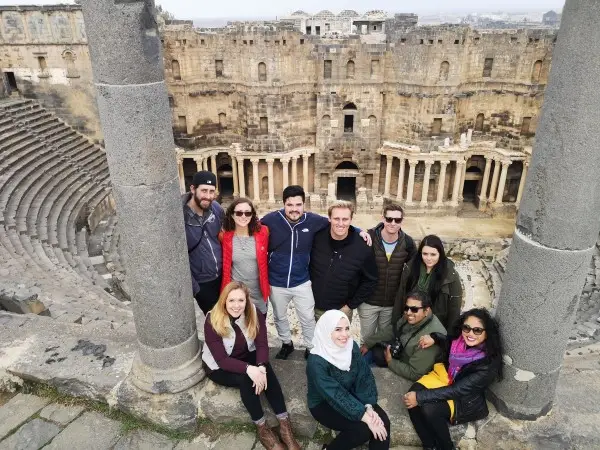
Are there are negative sides to travel?
No, not to travel. But, there are many negative sides to the type of travel we do, and even more when you start to plan life around travel (and not the other way around).
These days, all I know is work and travel. Juggling both is draining; I am always tired. Between working and traveling, I am not left with much time for anything else. I have scarified so many friendships and relationships for travel. I have missed birthdays, weddings, and other celebrations. Most people do not stick around if you are gone every other weekend. I have scarified time with family. Name a holiday, and I can tell you where I was when I missed it. With limited time, I have to choose between life and travel—and, I always choose travel.
When I am around, I find it harder and harder to connect with most people. I have become unrelatable. How do you casually tell someone that you went to South Sudan for the weekend? People outside of our community just do not get it. If you think about it, we are a weird bunch, us extreme travelers. We count countries, discuss visa processes for fun, and choose to vacation in places like Somalia and Syria. We are not relatable.
Since joining Every Passport Stamp, I have met and traveled with over 100 other extreme travelers. I quickly noticed that we had a lot more in common than just travel. I realized that almost all of these fellow travelers (myself included) were single, childfree, or divorced. Of course, there are exceptions, but there seems to be a theme here.
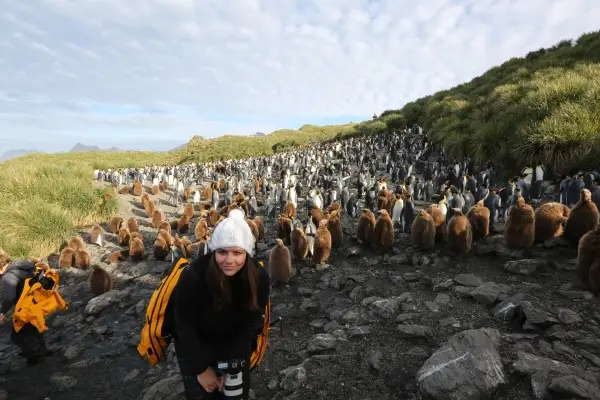
What do you do when you are not travelling? Do you try to balance a ‘normal’ life with a ‘travel’ life or not really?
At this point, I am not really sure what a “normal” life is anymore. Since I started chasing 193, my life has revolved around travel—well, that and work. Most of time goes to either work or travel. When I am not traveling, I am working. I have a rather demanding full-time job that eats up a lot of my time and energy. But, it also funds travel. Working in the United States means I have a limited amount of annual leave at my disposal. So, juggling work and travel takes some strategy. In order to maximize time off, I switched to a 4/10 work schedule. Working four ten-hour days meant that I had an extra day off each week, but it also meant four really long days. Before the pandemic, I had to show up in-person for work. Factoring in total commute time, work claimed more than half of each day. By the time I got home, I had no time or energy to do anything. Working from home throughout the pandemic has been nice. I finally got some time back. But, I still cannot work from a different state or country.
With that extra day off each week, I am able to arrange my work schedule in a way that allows me to travel every other weekend without actually taking time off. For the first few years, I basically traveled every other weekend. I only slowed down right before the pandemic. For a while, at least 24 days out of each month went to work and travel, leaving me with not much time for anything else. The remaining time mostly went to planning trips and other responsibilities. And then, whatever time was left over after that went to spending time with family and friends. So, this is what my life has looked like for the past few years.
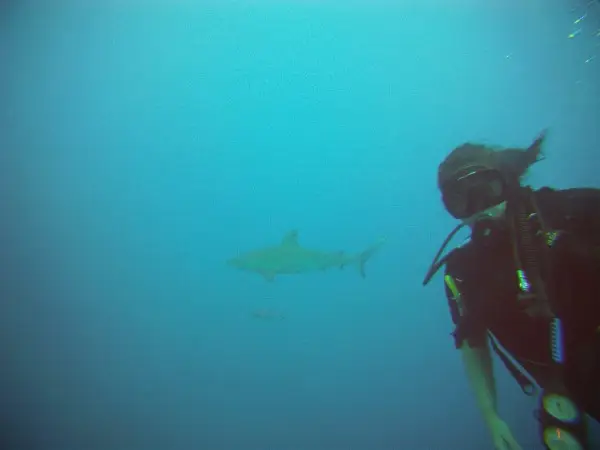
You are quite prolific on EPS. What are some of the best things of this platform for the avid traveller? Are there any drawbacks?
This platform allows you to connect with other travelers at the click of a mouse. I joined Every Passport Stamp in 2017 and EPS – Meetup Group in 2018. The group was a lot smaller back then; we interacted a lot more and knew each other by name. Bonded by travel, many of these original members became friends. Aside from simply connecting with people who share the same love for travel, the members of EPS offer a wealth of knowledge and experience. From fixers to visas, you have access to all the information at the tip of your fingers.
The drawback? You find out that you really are not that special. I am only joking, but things were a lot different before I joined EPS. I used to think I was cool. Back then, to my knowledge, only a handful of people had visited every country in the world. Aside from the few making the news, I thought what they had done, and what I was attempting to do, was something almost unheard-of. I thought of so many “firsts” that I could be. And then, one day, someone told me about this Facebook group for serious travelers chasing every country in the world. All 3,000+ of them. With hundreds way ahead of me. Moments after joining the group, I could not help but laugh to myself. I was quickly stripped of every “first”—a truly humbling experience. Ultimately, I lost my ego, but found my tribe.
Jokes aside, I can only think of one major drawback: my list keeps growing. I learn so much from EPS, more than I do from searching Google. Because of that, I am constantly adding new places to my list. With limited time for travel, this is rather frustrating.
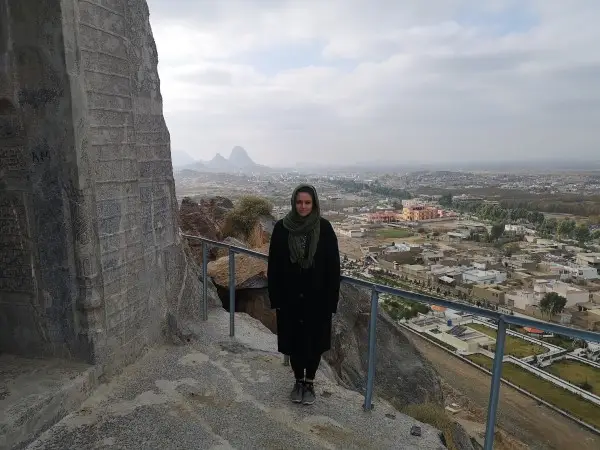
So where will you be heading next?
I have absolutely no idea. Wherever I can? At the moment, I have nothing planned or booked. I really need to figure out what to do with my annual leave this year. I took the entire month of May off to celebrate my 30th birthday around the world. But, I planned to do this before the pandemic happened. So, I have no idea how all that will play out.
Finally, our signature question – if you could invite any four people from any period of human history to dinner, who would you invite and why?
Jesus, Abraham, Moses, and David Attenborough. I will leave you guessing why.
